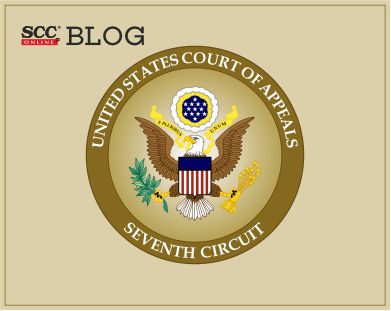United States Court of Appeals (Seventh Circuit): While deciding the instant appeal arising from the preliminary injunction passed by the United States District Court for the Southern District of Indiana, whereby which it had barred the enforcement of an Indiana law requiring abortion providers to dispose of foetal remains by either burial or cremation, the Bench of Easterbrook, Brennan, and Scudder, Circuit Judges, reversed the said injunction. stating that that no violation was committed while making this law. It was stated that statutes that require people to disobey sincerely held religious beliefs can pose difficult analytical challenges; but Indiana does not require any woman who has obtained an abortion to violate any belief, religious or secular. The cremate-or-bury directive applies only to hospitals and clinics.
The District Court while passing the injunction had held that the Indiana law violates the First Amendment.
While issuing their opinion, the Circuit Judges noted that in the instant case, two female plaintiffs who had obtained abortions, objected to the cremation or burial of the foetal remains, by contending that burial or cremation implied “personhood of a pre-viability foetus”.
The Court noted that before enactment of the law in question, it had been common practice for medical providers to place foetal remains in the garbage as “medical waste”. However, the Circuit Judges stated that the District Court’s needlessly broad injunction treats the statute as invalid across the board (that is, on its face rather than as applied), thereby offending the principle that relief should be no greater than necessary to protect the rights of the prevailing litigants.
While deliberating over the afore-stated contention by two women, the Court pointed out that neither of the two plaintiffs contended that a third party’s cremation or burial of foetal remains would cause them to violate any religious principle indirectly. “What these two plaintiffs contend is that cremation or burial implies a view—the personhood of an unborn foetus-that they do not hold. They maintain that only human beings are cremated or buried. This is questionable. Dogs, cats, and other pets may be cremated or buried, sometimes as a result of legal requirements not to put animals’ bodies in the garbage”.
It was further stated that Indiana’s statute about foetal remains therefore need not imply anything about the appropriate characterization of a foetus. “If the statute reflects anyone’s view about foetal personhood, it is the view of the State of Indiana. Yet units of government are entitled to have, express, and act on, their own views about contestable subjects”.
The Circuit Judges further pointed out that the norm that units of government may require physicians (and other professionals) to provide accurate information to their clients long predates Planned Parenthood of Southeastern Pennsylvania et al v. Casey et al, 1994 SCC OnLine US SC 11 and has not been disturbed even if Casey has been overruled in Dobbs. Physicians must tell patients about drugs’ side effects and provide information that enables informed consent to risky procedures such as surgery. Nothing in Dobbs v. Jackson Women’s Health Organisation, 2022 SCC OnLine US SC 9, or any other post-Casey decision, implies that similar notice requirements violate the Constitution.
[Jane Doe v. Todd Rokita, 2022 SCC OnLine US CA 7C 1, decided on 28-11-2022]
*Sucheta Sarkar, Editorial Assistant has prepared this report.






